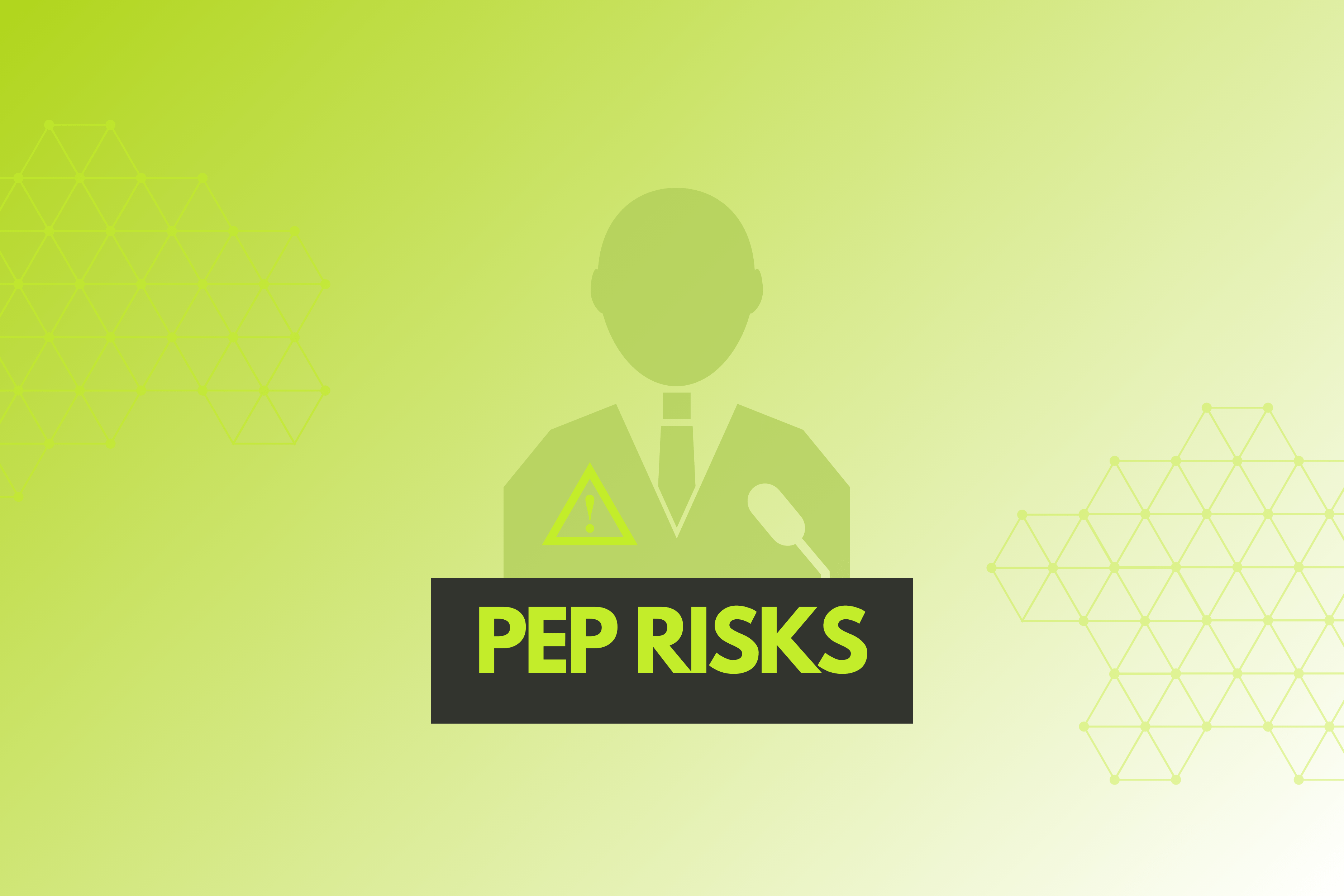Have you ever thought of how political figures exploit power? Corruption thrives in secret places, and avoidance of accountability sanctions dictatorship once said John F. Kennedy.
Politically exposed persons are individuals holding senior public positions. Though some risks are not monitored, there are risks associated with PEPs.
Financial institutions that know these risks take measures. Positions PEPs exercise carry influence in public due to the roles they play functions.
PEPs abuse power status, private embezzlement of public funds, and bribery. When PEPs engage in the activities of money laundering, these cause lawful reputational damage to institutions connected.
This is why banks need to screen PEPs to understand what deals with influential figures. In this article, we will discuss how PEP corruption poses risks to any financial institution.
PEP corruption
PEPs hold important roles in government, politics, and the judiciary. Sometimes, even royal families. PEP corruption is when PEPs accept bribes or steal public money.
Financial institutions must monitor all the PEPs closely. It also includes tracking relatives and close associates corruption of PEPs. In this way, it can detect corruption and money laundering. PEP checks identify these persons.
Banks then monitor transactions of such PEPs very closely. In 2023, a report showed how 70% of financial institutions have bolstered their PEP monitoring systems as concern grows over corruption and money laundering.
Bonus: Learn effective strategies to comprehensively screen for PEPs and protect your financial institution from corruption risks.
Risks political figures present
Deals with PEPs come along with risks. Their RCAs are also risky. PEPs may secretly transfer ill-gotten secret funds.
They can transfer them through many bank accounts. PEPs can use their political influence to hide corruption. They can also use it to hide financial crimes.
Strict monitoring keeps the banks safe. This is because it keeps the banks safe from clearing funds solicited through corrupt means and embezzlement.
In 2023, over $1.3 trillion was laundered through PEPs worldwide, establishing an urgent need for the establishment of better monitoring systems.
Money laundering through accounts
Some RCA and PEP engage in crimes, such as RCA bribery. They may also legitimate the ill-gotten means of wealth through money laundering.
The money laundering processes involve bank accounts. It is estimated that between $800 billion and $2 trillion is laundered annually worldwide.
Institutions need to have continuous checks on high-risk transactions involving PEPs and RCAs. The checks detect suspicious activities, and the controls and protocols prevent the corrupt funds from being laundered.
Bribery and illegal activities
Some politically exposed persons engage in bad acts. They take bribes to misuse power. PEPs also engage in illegal practices like stealing funds meant for governments.
Globally, this is calculated to amount to over $1 trillion each year. Effective PEP and RCA tracking of corruption is essential.
This will enable officials to trap bribery and illegal activities at early stages. Financial institutions end up saving from fines and loss due to links to corruption.
Damaged institutional reputation
Corruption of PEP damages the reputation of the financial company. Media reports linking to dirty money move fast, and another concern is transparency and compliance standards.
A 2023 PwC study found that 64% of financial institutions said reputational damage from non-compliance had had a major impact on their business.
Distrust by customers, regulators, and others arises. Tough checks need to be made on all clients, including PEPs and RCAs. Regular monitoring protects reputation against association with corruption.
Legal penalties and fines
Illegal PEP funds transactions can attract investigative actions. The regulators must take action and fine. As of 2023, such non-compliance amounted to around $3.4 billion worldwide.
The administrators will punish those institutions that do not monitor high-risk clients. The fines serve to convey the right message on building controls.
Companies are left with fewer risks from PEP corruption later. It also reduces the possibility of aiding fraudulent transfer or money laundering networks.
Increased compliance requirements
To prevent PEP fraud, rules get stringent. Regulatory authorities ask to keep a close check on political persons. Compliance officers need to check the records of all PEP and RCA customers.
The periodical watch will ensure compliance with the norms. Compliance audits by financial institutions increased by 30% during the last calendar year.
This reduces the risks of corruption proactively. Banks are focusing on stronger PEP screening processes.
Thorough compliance brings down the probability of penalties in case of inaction against dirty funds linkages.
Detecting PEP involvement
Financial institutions need a way of telling when PEPs use accounts for abusive purposes. The transactions have to be scrutinized for PEP and RCA corruption.
This checks former customers’ records as well. This picks the suspicious deal. Political figures have to be placed under close monitoring because money flows hide an illegal aim.
As of 2023, more than $2 trillion were flagged around the world as suspicious transactions linked to PEPs. Then, alerts increase, and corruption monitoring expands with time.
Protecting the financial company
Prevent damage to reputation from corruption. Screening PEP and RCA corruption protects the institution.
This is through the prevention of dirty cash flow. Stiffer penalties are reduced in case dirty money flows are detected before the regulators do.
Global money laundering transactions stand at a value range between $800 billion and $2 trillion annually.
Diligent monitoring protects the customers and fosters legitimate business conduct.
Contact us to discuss how to strengthen your policies and procedures for better detection and prevention of corrupt, politically exposed persons.





Leave a Reply